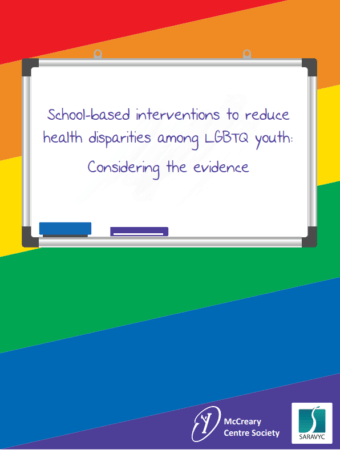
Research in Canada and elsewhere have documented significant health disparities for lesbian, gay, bisexual, transgender, queer and questioning (LGBTQ) youth compared to their heterosexual and cisgender (non-transgender) peers.
With higher levels of discrimination and bullying, and lower level of family, school, and community support, LGBTQ youth also face higher risks for significant health challenges, including suicidal thoughts and attempts, and problem substance use. However, when LGBTQ youth experience safe and supportive schools, and supportive families, they are much less likely to report these health challenges.
Schools are an important environment for youth, and a key place where public health professionals, partnering with school staff, can support effective health promotion strategies.
This report identifies and evaluates research evidence for school-based interventions to improve outcomes for LGBTQ youth. The goal of the report was to “provide evidence-informed guidance on how schools and their public health partners might work together to narrow the health gap for LGBTQ youth.”
